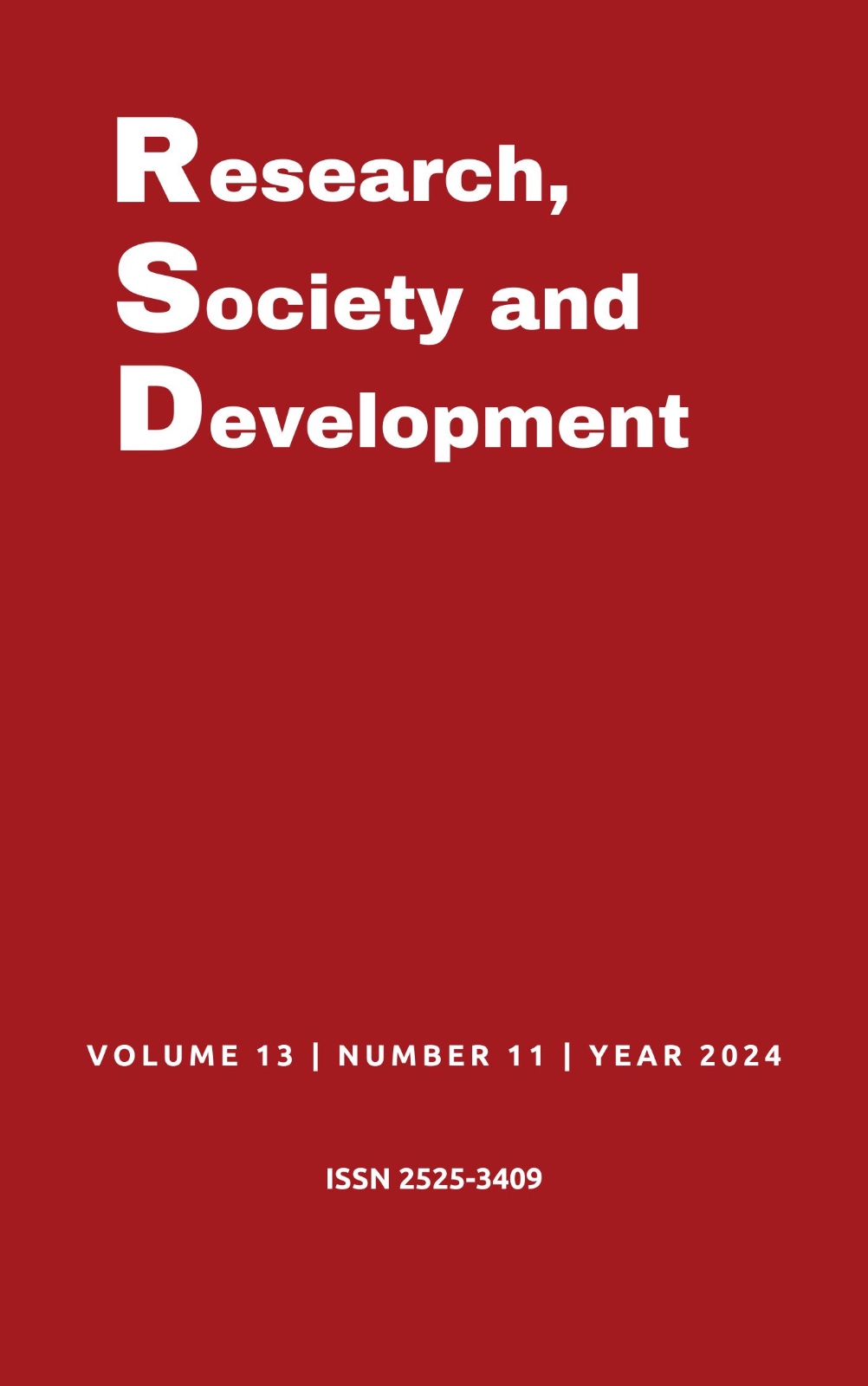Interventions In Perfectionism: The effectiveness of cognitive-behavioral therapy
DOI:
https://doi.org/10.33448/rsd-v13i11.47501Keywords:
Perfectionism, Intervention, Cognitive-behavioral therapy, Teaching, College teaching.Abstract
Cognitive-behavioral therapy (CBT) postulates that the interpretation of a given situation directly influences physical, behavioral, and emotional reactions, with symptom improvement occurring when dysfunctional thinking is modified, leading to changes in dysfunctional beliefs. Perfectionism can significantly affect mental and physical health levels, playing a critical role in psychopathologies and highlighting behavioral and cognitive aspects. Objective: To reflect on student training provided through clinical internship experience at a Higher Education Institution (HEI) in Teresina – Piauí, contributing to the practice and development of future professionals. Methodology: This is a qualitative research study of theoretical depth, based on an experiential model, where the type of textual production is an academic experience, with the primary characteristic being the description of the intervention. Results: Cognitive-behavioral therapies have been suggested for different audiences, demands, and contexts. Considering the findings during the sessions, it is evident that the techniques showed good adherence and effectiveness in treating perfectionism.
References
Barroso, S. M. (2023). Mais tarefas terapêuticas para clínica cognitivo-comportamental: atividades por objetivos clínicos. Sinopsys Editora.
Beck, J. S. (2022). Terapia cognitivo-comportamental: teoria e prática. (3.ed.). Artmed.
Brasil. (2016). Resolução N 510, de 07 de abril de 2016. Dispõe sobre as normas aplicáveis a pesquisas em Ciências Humanas e Sociais. Diário Oficial [da] República Federativa do Brasil, Brasília, DF, 24 de maio 2016.
Conceição, J. & Bueno, G. (2020). 101 técnicas da terapia cognitivo-comportamental. Mafra: UnC.
Diehl, A. B. R. P., Euzebio, L. D. C., & Mosmann, C. P. (2021). Personalidade perfeccionista e o relacionamento conjugal: uma revisão sistemática. Contextos Clínicos. 14(1), 186–203. https://pepsic.bvsalud.org/scielo.php?script=sci_arttext&pid=S1983-34822021000100010.
Donadon, M., Binhardi, B. A., & Braga, T. (2023). Implicações do perfeccionismo na ativação comportamental de paciente depressivo: um estudo de caso. revista eixo. 12(3), 87–96. https://arquivorevistaeixo.ifb.edu.br/index.php/RevistaEixo/article/view/1107.
Gottlieb, M., Chung, A., Battaglioli, N., Sebok-Syer, S. S. & Kalantari, A. (2019). Impostor syndrome among physicians and physicians in training: A scoping review. Medical Education. 54(2), 116–24. https://asmepublications.onlinelibrary.wiley.com/doi/abs/10.1111/medu.13956.
Greenberger, D. &Padesky, C. A. (2016). A mente vencendo o humor: mude como você se sente, mudando o modo como você pensa. Artmed Editora.
Hu, K. S., Chibnall, J. T. & Slavin, S. J. (2019). Maladaptive Perfectionism, Impostorism, and Cognitive Distortions: Threats to the Mental Health of Pre-clinical Medical Students. Academic Psychiatry. 43(4), 381–5. https://link.springer.com/article/10.1007/s40596-019-01031-z.
Kannis-Dymand, L., Hughes, E., Mulgrew, K., Carter, J. D. & Love, S. (2020). Examining the roles of metacognitive beliefs and maladaptive aspects of perfectionism in depression and anxiety. Behavioural and Cognitive Psychotherapy. 48(4), 442–53. https://www.cambridge.org/core/journals/behavioural-and-cognitive-psychotherapy/article/abs/examining-the-roles-of-metacognitive-beliefs-and-maladaptive-aspects-of-perfectionism-in-depression-and-anxiety/01C2590F3A67AD3F7E3A8A1369D41AE6.
König, L. & Palma, P. (2020). Impostorismo e perfeccionismo desadaptativo na formação médica: uma revisão à luz da Terapia Cognitivo-Comportamental. Psicologia Argumento. 39(103), 158. https://periodicos.pucpr.br/psicologiaargumento/article/view/26864.
Leahy, R. L. (2018). Técnicas de terapia cognitiva: manual do terapeuta. Artmed.
Leung, J., Cloninger, C. R., Hong, B. A., Cloninger, K. M. & Eley, D. S. (2019). Temperament and character profiles of medical students associated with tolerance of ambiguity and perfectionism. PeerJ. 7, e7109. https://peerj.com/articles/7109/.
Limburg, K., Watson, H. J., Hagger, M. S., & Egan, S. J. (2016). The Relationship Between Perfectionism and Psychopathology: A Meta‐Analysis. Journal of Clinical Psychology. 73(10), 1301–26. https://onlinelibrary.wiley.com/doi/abs/10.1002/jclp.22435.
Mussi, R., Flores, F. F., & Bispo, C. (2021). Pressupostos para a elaboração de relato de experiência como conhecimento científico. Práxis Educacional. 17(48), 1–18. https://periodicos2.uesb.br/index.php/praxis/article/view/9010.
Rocha, A. S. (2021). Perfeccionismo e a relação com psicopatologias: Estudo integrativo. Research Society and Development. 10(2), e59410213033-e59410213033. https://rsdjournal.org/index.php/rsd/article/view/13033.
Senna, I., Vasconcelos, A. M. N., & Iglesias, F. (2021). Parque público e criminalidade: preditores ambientais da percepção de (in)segurança. Gerais: Revista Interinstitucional de Psicologia. 14(1), 1–16. https://pepsic.bvsalud.org/scielo.php?pid=S1983-82202020000300011&script=sci_arttext.
Smith, M. M., Sherry, S. B., Vidovic, V., Saklofske, D. H., Stoeber, J., & Benoit, A. (2019). Perfectionism and the Five-Factor Model of Personality: A Meta-Analytic Review. Sage Journals. https://journals.sagepub.com/doi/abs/10.1177/1088868318814973.
Soares, A. K. S., Nascimento, E. F do. & Cavalcanti, T. M. (2021). Fenômeno do Impostor e Perfeccionismo: Avaliando o Papel Mediador da Autoestima. Estudos e Pesquisas em Psicologia. 21(1), 116–35. https://www.e-publicacoes.uerj.br/revispsi/article/view/59373.
Stoeber, J. (2017). The psychology of perfectionism: Theory, research, applications. Routledge. New York: Routledge.
Downloads
Published
Issue
Section
License
Copyright (c) 2024 Julia Beatriz Mendes e Silva; Sara Cavalcanti Souza

This work is licensed under a Creative Commons Attribution 4.0 International License.
Authors who publish with this journal agree to the following terms:
1) Authors retain copyright and grant the journal right of first publication with the work simultaneously licensed under a Creative Commons Attribution License that allows others to share the work with an acknowledgement of the work's authorship and initial publication in this journal.
2) Authors are able to enter into separate, additional contractual arrangements for the non-exclusive distribution of the journal's published version of the work (e.g., post it to an institutional repository or publish it in a book), with an acknowledgement of its initial publication in this journal.
3) Authors are permitted and encouraged to post their work online (e.g., in institutional repositories or on their website) prior to and during the submission process, as it can lead to productive exchanges, as well as earlier and greater citation of published work.


